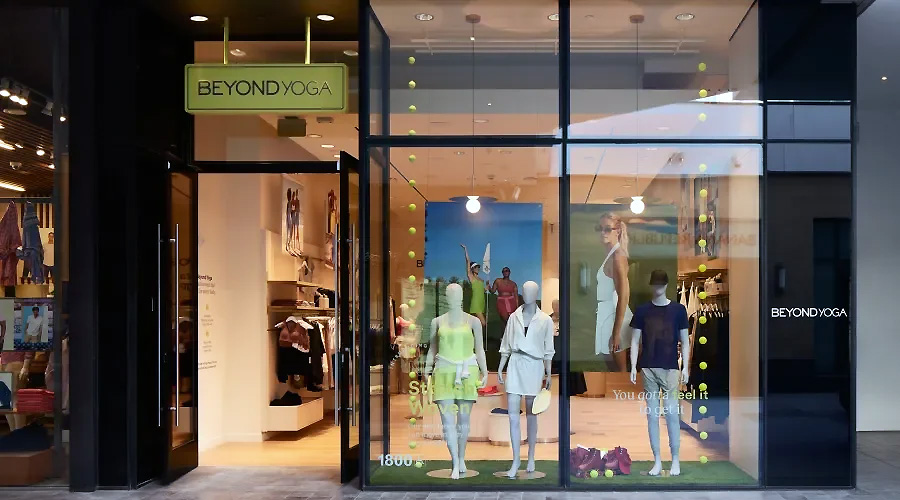Levi Strauss & Co. reported starting the year strong, delivering results above expectations for the fiscal first quarter that ended February 25, underscoring the brand’s power and the company’s progress in its strategic priorities.
“Both newness and strength in our core offerings are fueling consumer demand and driving meaningful market share gains,” said Michelle Gass, president and CEO of Levi Strauss & Co. “The momentum in our global DTC business continues, with DTC up in all segments. Our efforts to stabilize our wholesale business are delivering results. We are on our way to transforming this company into a best-in-class DTC-first apparel retailer, setting the stage for our next phase of sustainable, profitable growth.”
Despite the excitement on the surface, consolidated revenues declined 8 percent year-over-year to $1.6 billion in the first quarter, primarily due to tough comparatives created from the shift in wholesale shipments from Q2 to Q1 2023 from the U.S. ERP implementation.
“This shift negatively impacted Q1 2024 over 2023 by approximately $100 million or 6 percent of net revenues,” the company said. “In addition, excluding the impact of the exit of the Denizen business and Russia, net revenues would have been flat to prior year.”
Direct-to-consumer (DTC) net revenues increased 7 percent on a reported basis and 8 percent on a constant-currency basis in the quarter. DTC growth exceeded total net revenue growth in all segments, including a 10 percent increase in the U.S. and a 4 percent increase in Europe, excluding Russia. Revenues from e-commerce grew 13 percent on a reported basis and 12 percent on a constant-currency basis, reflecting double-digit growth across the Levi’s and Beyond Yoga brands.
Beyond Yoga was up 11 percent in Q1 on top of similar growth in the prior-year quarter, primarily driven by strength in e-commerce.”We are making investments to grow brand awareness and unleash the growth potential of this incredible brand,” said Gass on a conference call with analysts.
Total DTC comprised a record 48 percent of net revenues in the fiscal first quarter.
Wholesale net revenues declined 18 percent on a reported basis and 19 percent on a constant-currency basis in Q1, driven primarily by the $100 million negative shift in wholesale shipments from the U.S. ERP implementation from Q2 to Q1 2023. Global wholesale net revenues were down 9 percent to the prior year when normalizing for the shift in wholesale shipments in Q1 2023.
Gross margin was up 240 basis points to 58.2 percent from 55.8 percent in Q1 2023 primarily due to lower product costs and favorable mix shift.
SG&A expenses were $791 million compared to $774 million in Q1 2023.
Adjusted SG&A was $766 million compared to $757 million last year.
Restructuring charges were $116 million related to Project Fuel, consisting primarily of severance and post-employment benefit charges.
Net interest and other expenses, including foreign exchange losses, were $12 million in the aggregate compared to $18 million in Q1 2023.
Net loss was $11 million, or 3 cents per diluted share, in Q1, compared to net income of $115 million, or 29 cents per diluted share, in Q1 2023.
Adjusted net income was $103 million, or 26 cents per diluted share in Q1, compared to $135 million, or 34 cents per diluted share in Q1 2023.
“The structural economics of our business improved in Q1 driven by significant gross margin expansion, disciplined expense controls and efficient working capital management,” said Harmit Singh, chief financial and growth officer at Levi Strauss & Co. “Our global productivity initiative, Project Fuel, is progressing well and improving the profitability of the company. Looking forward, we are encouraged by trends in our business around the world, including in Europe. As a result, we are confident in our ability to return the topline to mid-single-digit growth in the second half of this year and are increasing our full-year EPS expectations.”
Gass said that the company remains focused on driving cost efficiencies as part of Project Fuel.
In addition to streamlining Levi’s organizational structure and eliminating approximately 12 percent of its global workforce, the company also embarked on a nearly 15 percent initial reduction across Levi’s product assortment.
Gass said the company is also de-prioritizing footwear, which affects Levi’s branded footwear but not collaborations such as the recent Levi’s x New Balance collab.
“After a strategic review of our categories, we have taken the decision to wind down our small Levi’s footwear business,” Singh shared.
“These efforts, together with the recent decision to exit Denizen, not only improve our cost structure but also provide an unlock in simplifying and streamlining how we work,” Gass noted on the call.
Image courtesy Beyond Yoga / Levi Strauss & Co.
















